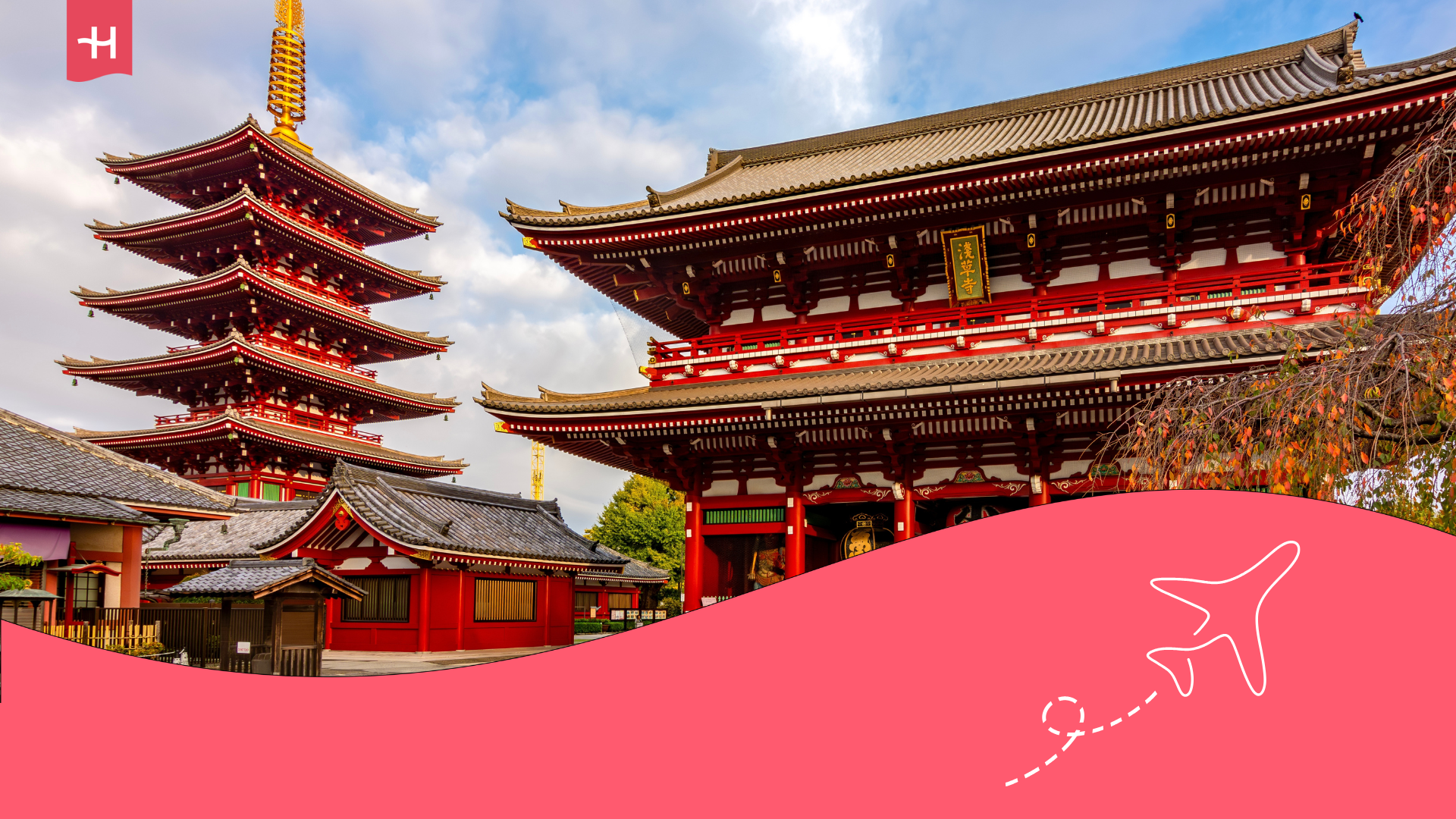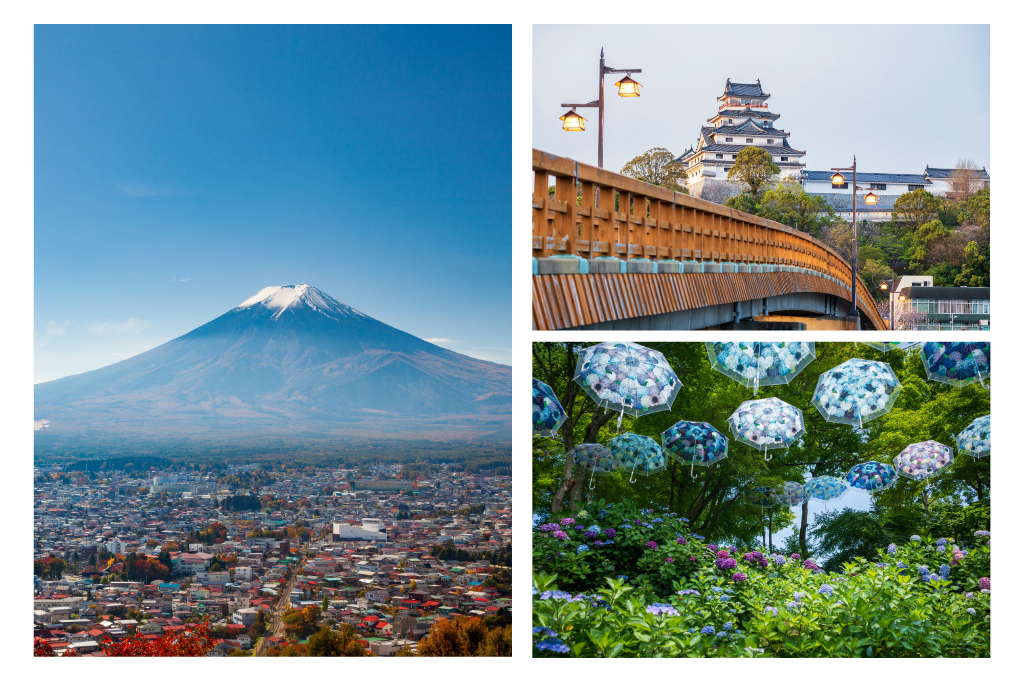Volunteering in Japan: Requirements, best programs, and costs
Complete guide to volunteering in Japan: requirements, types of projects, estimated costs and recommended programs.
If you’ve ever dreamed of volunteering in Japan, get ready to discover not just an incredible country, but a side of yourself you didn’t know existed. Sure, walking through centuries-old temples, wandering bamboo forests, or riding the bullet train is unforgettable. But what truly makes it special is getting involved supporting rural communities, helping with environmental efforts, or contributing to education. Japan offers countless ways to make a real impact while living an experience that stays with you for life.
Before choosing the right volunteer program, there are a few key things to keep in mind: application requirements, the types of programs available, any costs you might need to cover, what living conditions will be like, the potential for culture shock, and how to prepare for it. All of these factors play a big role in making sure your volunteer experience is truly meaningful.
We’re here to guide you through everything you need to know. From the different types of volunteer work you can do in Japan and the paperwork you’ll need, to what daily life is really like once you’re there. If you’re seriously thinking about taking the leap, this guide will help you do it with confidence.

Why volunteer in Japan?
Volunteering in Japan is about more than just joining a meaningful project, it’s about immersing yourself in a culture with its own pace, values, and way of seeing the world. Here are some of the most rewarding aspects of the experience:
1. You experience Japanese culture from the inside and not as a tourist
Visiting Japan as a tourist is one thing, living and working alongside locals is something else entirely. When you volunteer, you become part of the real, everyday life of the community. You share daily routines, pick up on unspoken social cues, and gradually learn to adapt and respect a different pace of life. That’s when true cultural understanding happens.
2. You learn to adapt and trust yourself
Adjusting to life in Japan isn’t always easy — the language, the customs, the lifestyle can all feel pretty different. But that’s exactly what makes volunteering such a powerful experience. It challenges you to grow, to figure things out, and to connect with people beyond words. At first, it might feel a bit overwhelming, before you know it, you’ll find yourself settling in.
3. You connect with people
There’s something truly special about volunteering, connections are built through everyday moments and simple routines. You don’t need to speak the language perfectly to feel like part of a community. The bonds you form go beyond cultural differences, and it stays with you.
4. You share your way of seeing the world
Many programs appreciate when you bring a bit of your own culture into the mix, sharing what you know and who you are. It’s not just about helping out; it’s about creating a genuine exchange. They open up their way of life to you, you share a part of yours, and in the process, everyone gains something meaningful.
5. You learn things for life
Whether you’re on a farm, at a school, or working on an environmental project, you’ll gain skills that go far beyond volunteering (like teamwork, cultural empathy, patience, and initiative). All of these add up and can open many doors for you down the line.
6. You get a sense of purpose that shows
There’s something truly rewarding about knowing your time is well spent and that your efforts make a difference. Being part of a project that needs your help and learning along the way leaves a lasting impact you’ll carry with you always.
7. Be part of a global community
Many volunteer programs in Japan bring together people from all over the world. So, besides immersing yourself in Japanese culture, you’ll also build connections with fellow volunteers who are sharing the same experience as you.
Requirements for volunteering in Japan for foreigners
If you’re thinking about volunteering in Japan, having the right motivation is key. There are also some formal and logistical requirements to keep in mind to make sure your experience goes smoothly. Small details can really shape how you live through the process, so here’s a breakdown of the most important things to consider before you get started.

- Most volunteer programs in Japan require you to be at least 18 years old. Some, like those under the Working Holiday visa, also set an age limit (usually up to 30 years old).
- You need to have a valid passport for your entire stay in Japan. It’s a good idea to make sure your passport is valid for at least six months from your entry date.
- If your volunteer work is unpaid and lasts under 90 days, you can enter Japan on a tourist visa—provided your country has a visa exemption agreement with Japan.
- For volunteer programs lasting more than 90 days or that offer any kind of compensation, you’ll need a specific visa. Usually, the host organization in Japan will provide you with a certificate of eligibility, which you’ll need to submit when applying for the visa.
- If you’re volunteering in Japan, having health insurance that covers your entire stay is mandatory. It should include medical care, hospitalization, and emergency repatriation.
- You’ll need to show that you have enough funds to cover your expenses. For instance, the Working Holiday visa requires proof of at least $2,150 for living costs, plus an extra $1,075 if you don’t have a return ticket.
- Some programs may ask for a medical certificate to confirm you’re in good health, along with a criminal background check. These documents help ensure the safety and well-being of both you and the community.
- Although not always required, a basic knowledge of English or Japanese will ease your communication and adaptation while volunteering.
- It’s also important to approach the experience with an open mind, respect, and a willingness to learn. Volunteering means adapting to new cultures and ways of life, so your commitment is essential.
Stay connected while volunteering
We suggest having a reliable internet connection while you’re in Japan to stay in touch with your organization, family, and friends. A great option is getting a Holafly eSIM, which gives you unlimited data without changing your phone number. With their monthly plans, you can stay connected right from the moment you land in Japan.
Important: If you are a frequent traveler and want to stay connected without worrying about expensive roaming or looking for a new SIM at every destination, Holafly’s subscription plans are for you. With a single eSIM, enjoy internet in more than 170 countries for a fixed price and no surprises on your bill. Travel without limits and connect easily and securely! 🚀🌍

Best volunteer programs for Japan
Japan is famous for its culture, stunning landscapes, and cutting-edge technology — but it’s also a place where you can get involved in meaningful projects and have a truly unique experience. Whether you’re interested in supporting rural initiatives, teaching languages, working on sustainability, or connecting with local communities, there are volunteer programs tailored to a variety of backgrounds, schedules, and motivations. Here’s a look at some of the top-rated volunteer opportunities in Japan, with all the details you’ll need.
WWOOF Japan: Organic farming and rural life
WWOOF Japan (World Wide Opportunities on Organic Farms) is a network that links volunteers with hosts across the country. When you join, you get involved in daily tasks like organic farming, traditional cooking, building, or animal care (depending on the host you choose). In return for your help, you receive room and board, without any monetary exchange.
To join WWOOF Japan, you just need to be at least 18 and sign up on their website with a membership fee of about $50, which is valid for 18 months. You don’t need any farming experience or perfect Japanese. Just keep in mind, they don’t handle visas, so you’ll have to take care of your entry paperwork on your own.
Your stay can range from a few days to several months, depending on the host. You’ll typically work 4 to 6 hours a day, but beyond the tasks, this experience lets you immerse yourself in local culture, learn about sustainable farming, and connect with people from around the globe. It’s a genuine, rewarding way to truly get to know Japan.
English exchange in Otaki
If you want a deeper cultural experience with purpose, Otaki’s English exchange program is perfect. It’s all about helping locals improve their English through casual conversations—no teaching credentials or formal lessons needed. It’s all about sharing, chatting, laughing off mistakes, and building confidence in those eager to learn. Plus, you get to enjoy a peaceful, authentic life surrounded by mountains and forests.
Volunteers typically contribute around 2 to 3 hours a day, whether chatting with local shop owners, helping out at a primary school, or joining community activities. In return, the program provides shared-room accommodation, three meals on weekdays and two on weekends, internet access, and cultural events. They even offer pickup from Shinjuku bus terminal in Tokyo, making your arrival much easier.
To join, you just need to be between 18 and 50 years old, have a basic level of English, have completed high school, and provide a background check. The minimum stay is two weeks, but you’re welcome to stay longer if you want to keep contributing. Prices depend on how long you stay, so it’s best to check directly with the program for details.
Worldpackers
Worldpackers is a platform that lets you volunteer in Japan in areas like hospitality, farming, or community projects, in exchange for accommodation and often meals. It’s a flexible and affordable way to experience the country firsthand, while learning and contributing in real, diverse settings.
To join, you need to be at least 18, create a complete profile on the platform, and depending on the host, have a basic level of English or Japanese. Most stays last between 2 and 4 weeks, with the option to extend if things go well with the host. Tasks, schedules, and conditions vary but are always agreed upon beforehand.
The annual membership is about $49 and gives you access to all volunteer opportunities across the country. Besides accommodation, some hosts provide meals, language classes, or cultural activities. You’ll cover your own flight and insurance, but Worldpackers supports you every step of the way.
Types of volunteer projects in Japan
Volunteering in Japan usually means getting involved in specific projects with defined roles, rather than juggling many different tasks. Many happen in rural towns or smaller communities, giving you a chance to connect deeply with local people. Here’s a look at the volunteer options you’ll most often come across:

Education and language training
One of the most popular volunteer opportunities in Japan is informal English teaching or cultural exchange. It’s less about formal lessons and more about creating relaxed environments where locals can practice speaking English and learn about other cultures. These programs often take place in community centers, libraries, or arranged cafés. Your role might involve leading games, activities, workshops, or just casual conversations. Especially outside Tokyo, many people still face challenges speaking English, so your help really makes a difference.
Rural life, agriculture and ecology
Japan’s bond with nature runs deep, yet many countryside communities are shrinking. Agricultural volunteer projects focus not only on farm tasks but also on keeping alive traditions and lifestyles at risk of disappearing. You might help with organic farming, tending home gardens, using traditional building techniques, or crafting local goods. This is a unique way to experience genuine Japanese hospitality and connect with nature.
Child care and community support
You could get involved in anything from playing with kids and running creative workshops to helping out at community events. What really matters, though, is the connection you build with people. In Japan, mutual respect and harmony are deeply valued, so being engaged also means being mindful of local customs.
Environmental projects
From replanting forests in the mountains to maintaining hiking trails or cleaning up coastlines, Japan offers plenty of ways to get involved in protecting its natural environment. Many local projects focus on preserving the country’s traditional landscapes, especially in areas like Hokkaido, Okinawa, and the Japanese Alps. These types of volunteer opportunities are perfect if you’re passionate about sustainability and want to make a real, hands-on difference.
Animal care and protection
While not as widespread as in some other countries, Japan does have animal care volunteer programs (mainly at shelters for dogs and cats). Volunteers typically help with feeding, cleaning, walking, grooming, and even supporting adoption efforts. Most of these shelters are run by small organizations or local volunteers, so extra help from international visitors is always appreciated.
How much does it cost to volunteer in Japan?
As we have mentioned before, volunteering in Japan is an enriching experience. Here are the main expenses associated with volunteering:
| Concept | Approximate cost (USD) | Details |
| Roundtrip airfare | $1,000-1,600 | Varies according to country of origin and season. |
| Visa (if applicable) | $0-50 | Many countries have a 90-day visa waiver; check by nationality. |
| Medical and travel insurance | $400 (annual) | Recommended to cover medical emergencies and other unforeseen events. |
| Monthly housing (if not included in volunteer program) | $0-500 | Generally included in volunteer programs; if not, varies by location. |
| Food monthly (if not included) | $0-300 | Often included; if not, it depends on your preferences. |
| Local transportation (monthly) | $50-100 | Includes trains, buses and other public transportation. |
| Personal expenses (monthly) | $100-300 | Shopping, tourist activities, souvenirs, among others. |
Frequently asked questions about volunteering in Japan
It’s not a strict requirement, but having a basic level definitely helps. Many hosts can communicate in English, but knowing a few Japanese phrases shows respect and makes daily life a lot smoother.
In most volunteer programs, you don’t have to pay for meals, as they’re usually included as part of the exchange. That said, some hosts only provide accommodation, or might ask you to cover your own food, so it’s important to check the program details carefully.
Japan is one of the safest countries in the world. Still, it’s always wise to have health insurance, let someone know where you’ll be, and check the reviews or references of the place you’ll be volunteering.
Absolutely! Many programs give you free time to explore, and some even include cultural activities or excursions. As long as you stay on top of your responsibilities and schedule, you’ll be able to enjoy your downtime.
Yes, a lot of people travel solo for the first time through these kinds of experiences. Volunteer programs are usually well-organized and safe, a great starting point for anyone who wants to explore independently while still having support along the way.














































 Pay
Pay  Language
Language  Currency
Currency 


















 No results found
No results found








